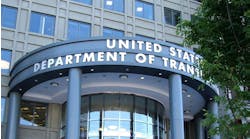Over the last decade, nuclear verdicts—which often exceed $10 million—have created a dark cloud over the commercial trucking industry. Consequences from these verdicts, where the evidence in many cases doesn’t support the monetary award, include skyrocketing insurance premiums and even business shutdowns for some motor carriers.
The trucking industry, however, has had enough and is fighting back against these verdicts and the reptile theory practitioners who provoke them. Using reptile theory, a plaintiff’s attorney will attack the reputation of the trucking company rather than focus on the circumstances of the accident itself, inciting jury fear and anger. Plaintiffs’ attorneys and other individuals have even gone so far as to create elaborate schemes to conspire against and sue trucking companies in order to maximize their profits.
Shortly after American Trucking Associations President Chris Spear declared a war on nuclear verdicts during ATA’s fall meeting in 2019, industry veteran Steve Bryan, who founded data analytics software provider Vigillo, recognized the industry was indeed under attack. After spending years helping commercial trucking companies manage their performance under the federal Compliance, Safety, Accountability program, Bryan turned his attention to helping the industry solve the nuclear verdict problem. In May, Bryan and a team of industry experts launched Bluewire, an artificial intelligence company that provides carriers and their insurance providers with data to protect against the cause of nuclear verdicts.
“I felt it was getting worse and escalating,” Bryan said of the problem during Trucksafe Live!’s premiere episode, "Going Nuclear." Trucksafe Live! is a monthly talk show hosted by Trucksafe Consulting’s Brandon Wiseman and Jerad Childress.
“With all the amazing products and services available to and being adopted by motor carriers, I thought, ‘Why is this thing getting worse,’” Bryan added. “As a software and data guy, that got me thinking whether there was something we could do by analyzing data and deploying a toolset of ‘weapons’ to wage that war Mr. Spear declared.”
Trucking’s defense: ‘White hat trial lawyers’
Through AI and text-mining technologies, Bluewire measures, reports on, scores, and then helps manage the reputation of individual motor carriers. Bluewire’s White Hat Recommendation Engine models concepts and best practices from the cybersecurity world to help monitor the safety systems, data siloes, and insurance claims that exist throughout the trucking industry.
“These trial lawyers and their beloved reptile theory get to the emotion and the inflammation of anger in the jury to punish the motor carrier,” Bryan stressed. “It is rarely about the specific incident of that crash. The crash is simply an opportunity for the plaintiffs, with their private equity backers, to open those doors and convince juries that you have a terrible, unethical corporate citizen here and that the only way we’re going to get them on track is to punish them, punish them, punish them.”
Bryan compared plaintiffs’ attorneys in the trucking world to hackers using attack vectors to dissect a trucking company’s business operations. When planning an attack on the trucking industry, plaintiffs’ attorneys will typically focus on gaps in safety like driver hours of service (HOS) violations, camera and advanced technology usage, company recruiting messages, and even messages between dispatchers and drivers.
Last year, the American Transportation Research Institute (ATRI) released a study on the impact of nuclear verdicts in trucking, which highlighted the safety-related issues that were found to be 100% in favor of the plaintiff during a trial. The top safety issues were discrepancies with driver HOS or logbooks, a driver’s history of using a controlled substance, if a driver left the crash scene or failed to call 911, and any sort of driver health-related issues.
In order to better arm the companies it works with, the first thing Bluewire will do is map these attack trajectories for an individual motor carrier to find how vulnerable they are, Bryan explained. Bluewire will then recommend a countermeasure to these—much like a white hat hacker hired to protect companies from cybercriminals. The team at Bluewire thinks of themselves as the white hat trial lawyers, Bryan said.
"We are going to come at you just as aggressively as any trial lawyer would, but, of course, we are working for you, so we will help you close those gaps and vulnerabilities,” he noted.
One of the major advantages that the plaintiffs’ bar currently has over the trucking industry is how attorneys often gather at conferences, seminars, and share information via white papers to learn best practices on how to plan out these reptile theory tactics, Bryan noted, citing ATRI’s study.
The trucking industry, on the other hand, has traditionally had more of a reactionary defense against these reptile theory practitioners.
“We are in fact very secretive, and we work hard not to share our best practices openly, and we have to overcome that,” Bryan said. He added that Bluewire is offering a private, members-only forum called Bluewire Connect, where industry executives and motor carriers can come together and share their best practices for defending against nuclear verdicts.
Legislative success
This past spring, the Texas trucking industry succeeded in getting House Bill 19 passed to curb the trend of lawsuit abuse in the state. Among other provisions, HB 19 ensures juries are presented with evidence that is directly relevant to causation and injuries in a highway accident and ensures the case is focused on the events at issue rather than on extraneous allegations outside the scope of the accident.
Texas has joined Montana, West Virginia, Louisiana, and Missouri in becoming the latest state in recent months to pass lawsuit abuse reforms. HB 19 in Texas takes effect on Sept. 1.
During the Trucksafe Live! discussion, John Esparza, president of the Texas Trucking Association, pointed out that the association worked closely with House Chairman Jeff Leach, who, as an attorney, recognized early on the challenges associated with nuclear verdicts.
“This well-known reptile theory began to really proliferate the last few years,” Esparza said. “In 2015 we sat down and recognized that we’ve got a growing issue, and it began to get worse and worse.”
He explained that four years ago, the association introduced two bills that didn’t go anywhere because there was no data to back them up. In order to get the measure passed, the association was focused on delivering that data to show exactly how frivolous litigation and these damaging verdicts were impacting the Texas trucking industry.
“When you dive into that data, it tells me that 18-wheelers are involved in accidents that result in fatalities in Texas 14% of the time,” Esparza explained. “Law enforcement being assigned responsibility to these instances happens approximately 4% of the time. That gives you an idea of what it entails to be a professional driver. These are professional people hauling 80,000 lbs. for 100,000 miles at any given time of the year. They do a fantastic job by and large. There is a fundamental difference between what has been happening, who’s at fault, and the direction of these lawsuits that are happening.”
HB 19 attempts to segregate a trial into two parts for any case that involves a commercial vehicle in the state of Texas.
Once in effect, HB 19 will provide motor carriers a timeframe to file a motion seeking a bifurcated trial. The first phase of the trial will determine the driver’s liability and the amount of compensatory damages. The second phase of the trial will then determine the motor carrier’s direct liability for claims like alleged negligent hiring or training, and the amount of exemplary damages.
“This is really about leveling the scales as they have been unleveled far too long, and it’s time we do something about it,” Esparza said.
“We’ve reached the tipping point in Texas with the data and the research that allowed us to move forward with a strong argument and a very strong coalition in seeking changes this past legislative session,” he added.




